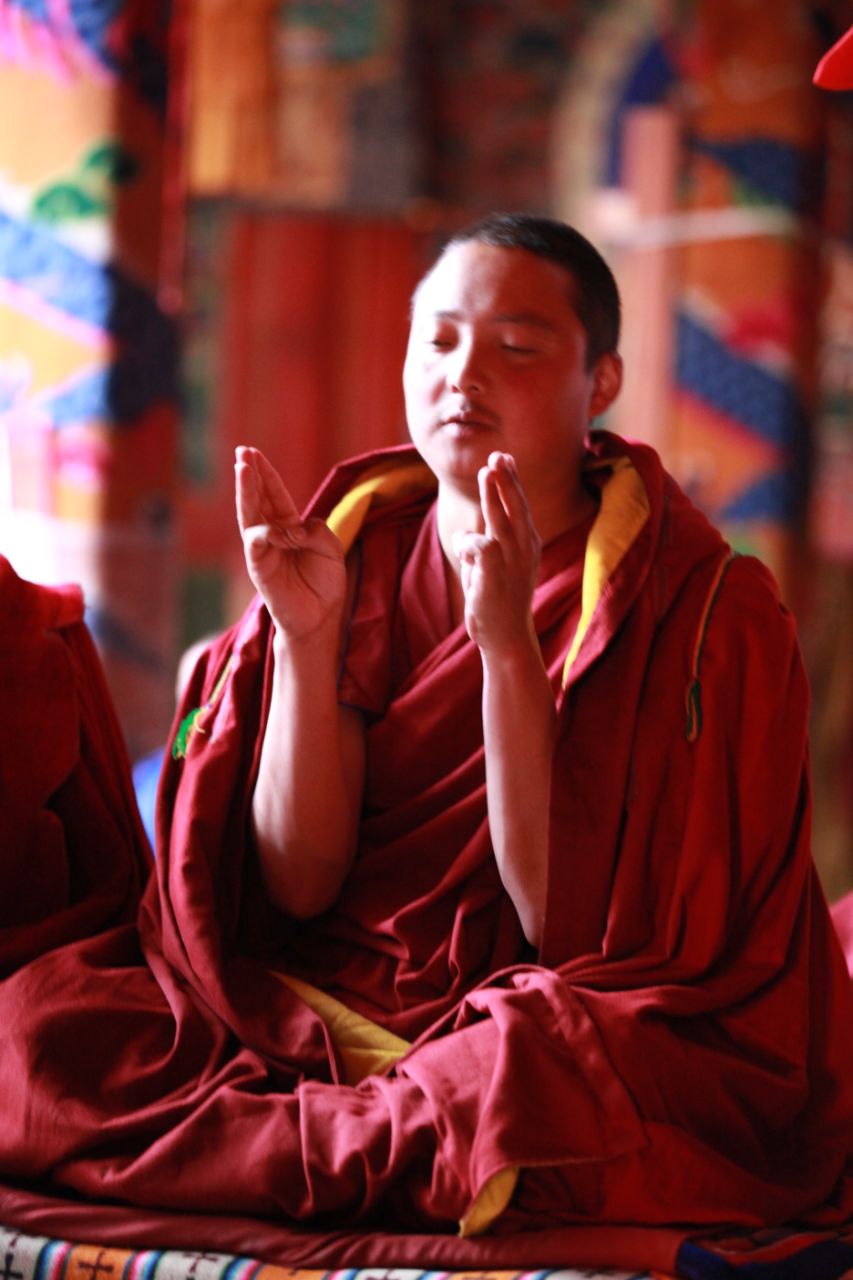Self-immolation truth: Tibetan Buddhism kidnapped by politics
 0 Comment(s)
0 Comment(s) Print
Print E-mail Xinhua, July 19, 2012
E-mail Xinhua, July 19, 2012
"Our life is bad now. It would be better to commit self-immolation to become a wisp of smoke. Do not burn at night otherwise the Communist Party will be happy because America's cameras above the Kirti Monastery can not capture it," Rala Lodro was quoted as saying in the oral confessions Xinhua obtained.
 |
|
|
A Tibetan monk praying [file photo] |
A Kirti monk asking not to be identified said that there had been invisible pressure upon the young monks to do something they could.
With most of its registered monks on a two-month-long leave to help their families dig worm grass, a rare medicine herb, Kirti Monastery whose land area has tripled to 18,000 square meters in two decades is now in its most inactive period of the year.
If someone died in surrounding residential neighborhoods, lamas will recite sutras in the morning. In afternoon, Buddhist scripture debating is routinely held. Other than these, those who stay have plenty of time at their disposal.
With the annual worm grass trips normally ending early July, changes will happen to the monastery as some monks may decide to become laymen after being distracted by earthly affairs.
Qiu Ning, director of the Aba United Front Work Department in charge of religious affairs, estimated that about 100 Kirti monks will leave the clergy every year. "However, not every one of them can get accustomed to their new life."
Among those who commit self-immolation, secularized monks have surfaced as a vulnerable group. Tsering and Darli, both former Kirti monks, burned themselves on January 6. According to Tsering who survived, Darle had been very upset because he had promised to commit self-immolation together with Tenzi Wangmo, a nun of the Siwai Nunnery of Aba whom he met during last year's worm grass leave. The 20-year-old girl burned herself last October and died.
"Darle told me he wanted to burn himself too to ask for the forgiveness of the Buddha because he had stolen the golden Buddha statute of the Kirti Monastery. I felt he was so lofty and was inspired by his courage," Tsering was quoted in this oral confession to the police.
In his deep heart, Tsering had his pains. After leaving the Kirti Monastery, he married and divorced and always pinched pennies. He confessed that one month before committing self-immolation, he and his friend Nyigeme robbed 8,000 yuan from his relative Lokhor who had reported the crime to the police.
Tudong Tarqin, lama and deputy director of the management committee of the Namah Monastery in Kangding county of Ganzi prefecture, felt sorry to hear so many young former clergy had killed themselves.
"Buddha tells us to always observe and think. If someone seeks to convert to Buddhism because of family feud, setbacks in life or out of impulse, we must refuse. Likewise, Buddha instructs the Sangha not to give up on even the vicious one, because on the merit of wearing cassock for one day, ordained monks are sure to attain enlightenment."
Donggou Living Buddha, deputy director of the management committee of the Kirti Monastery, called himself a "stick-in-the-mud" and "too old to keep the younger generation under control."
"Each year we see many young Tibetans come in and leave. I don't have the number of secularized monks," said the 70-year-old to Xinhua.






Go to Forum >>0 Comment(s)